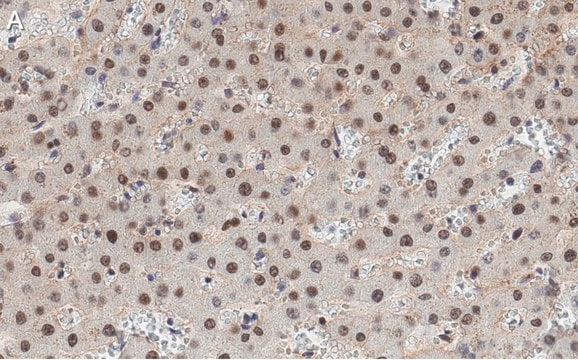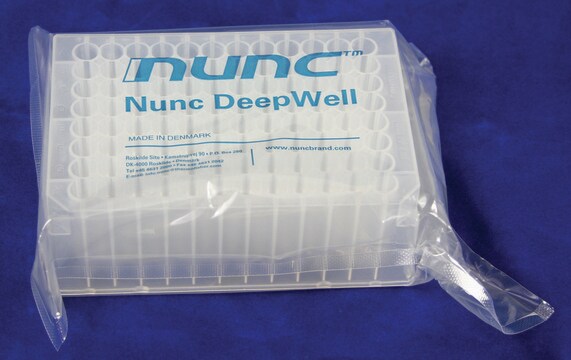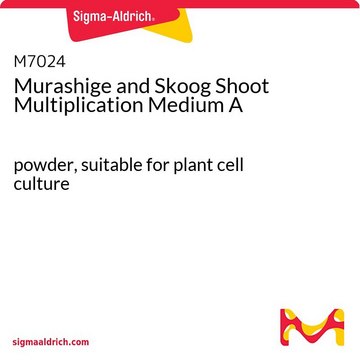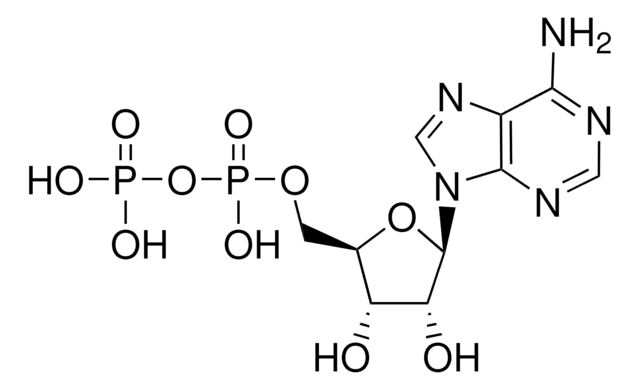H0665
Monoclonal Anti-Hepatocyte Growth Factor antibody produced in mouse
clone 24516, purified immunoglobulin, lyophilized powder
Sinónimos:
Anti-HGF
About This Item
Productos recomendados
biological source
mouse
Quality Level
conjugate
unconjugated
antibody form
purified immunoglobulin
antibody product type
primary antibodies
clone
24516, monoclonal
form
lyophilized powder
species reactivity
human
technique(s)
capture ELISA: 2-8 μg/mL
western blot: 1-2 μg/mL
isotype
IgG1
UniProt accession no.
storage temp.
−20°C
target post-translational modification
unmodified
Gene Information
human ... IL4(3565)
¿Está buscando productos similares? Visita Guía de comparación de productos
General description
Monoclonal Anti-Hepatocyte Growth Factor recognizes human HGF. The antibody shows less that 0.25% cross-reactivity with recombinant human Macrophage Stimulating Protein (MSP).
Immunogen
Application
Physical form
Disclaimer
¿No encuentra el producto adecuado?
Pruebe nuestro Herramienta de selección de productos.
Related product
Storage Class
13 - Non Combustible Solids
wgk_germany
WGK 1
flash_point_f
Not applicable
flash_point_c
Not applicable
ppe
Eyeshields, Gloves, type N95 (US)
Certificados de análisis (COA)
Busque Certificados de análisis (COA) introduciendo el número de lote del producto. Los números de lote se encuentran en la etiqueta del producto después de las palabras «Lot» o «Batch»
¿Ya tiene este producto?
Encuentre la documentación para los productos que ha comprado recientemente en la Biblioteca de documentos.
Nuestro equipo de científicos tiene experiencia en todas las áreas de investigación: Ciencias de la vida, Ciencia de los materiales, Síntesis química, Cromatografía, Analítica y muchas otras.
Póngase en contacto con el Servicio técnico








